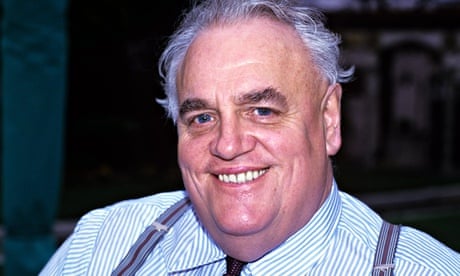A senior detective investigating sex abuse claims against Cyril Smith told the force there was prima facie evidence of the late MP's guilt in 1970 – but this claim was overruled, newly released documents show.
The detective's report in 1970 to the chief constable of Lancashire said the Liberal MP would have been "at the mercy of a competent counsel".
The 14-page report also revealed "veiled threats" from a friend of Smith, thought to be a fellow senior Liberal. The director of public prosecution later advised against prosecuting. Smith died in 2010 aged 82.
The documents were released on Wednesday night by the Crown Prosecution Service following a ruling by the information rights tribunal.
Simon Danczuk, the Rochdale Labour MP, who first named Smith as a child abuser, said that the documents were another indication of the cover-up that had protected Smith from being disclosed as a paedophile.
"This shows that police officers were certain of his guilt," Danczuk said. "If they had been allowed to do their job they would have saved many more boys from being abused. We know that Cyril went on to abuse many more boys at Knowl View residential school, Elm guest house, and other places, during the 70s and 80s."
The detective, whose name has been redacted from the report, was investigating allegations of sex abuse from eight young boys, six of whom who had been at the privately run Cambridge House care home in Rochdale. The home closed in 1965.
Smith was interviewed by the detective superintendent, who reported to the former chief constable William Palfrey that it seemed "impossible to excuse [Smith's] conduct".
The officer wrote: "Over a considerable period of time, while sheltering beneath a veneer of responsibility, he has used his unique position to indulge in a series of indecent episodes with young boys towards whom he had a special responsibility."
He said Smith was "most unimpressive during my interview with him … he had difficulty in articulating and even the stock replies he proffered could only be obtained after repeated promptings from his solicitor".
He added: "Were he ever to be placed in the witness box, he would be at the mercy of any competent counsel … prima facie, he appears guilty of numerous offences of indecent assault."
The officer also interviewed a magistrate who told him that in his "personal opinion" he "sincerely hoped that this matter was not prosecuted before the court". The Guardian understands that the magistrate was a prominent Liberal. "In my opinion, as a justice of the peace, it is not court worthy," he told the officer.
Separately, it was claimed on Wednesday that former police officers should be given amnesty to allow them to speak without fear about what they knew of paedophile networks operating in Westminster 30 years ago,
Chris Hobbs, a special branch officer who spent 32 years with the Metropolitan police, said retired colleagues should be given protection to encourage them to reveal what they had learned, and that many would be carefully considering the consequences of speaking out on what they knew of the allegations.
Hobbs told Sky News it was clear that quite a few officers, from the rank of commissioner and chief constable to detective level, would know something about allegations of child abuse among politicians three decades ago. An amnesty would be the only way to encourage former officers to come forward and speak out, he said.
Hobbs said: "I think it would help – it would help set officers' minds at rest if there was some form of protection there for them, that they weren't suddenly going to subject to the criminal investigations for possibly just doing what they were told.
"I suspect there will be a substantial number of police officers, not huge numbers, but a substantial number, that will know something and will be thinking to themselves, 'shall I come forward, dare I risk it, or, if I keep my head down, will the storm pass me by?'"
